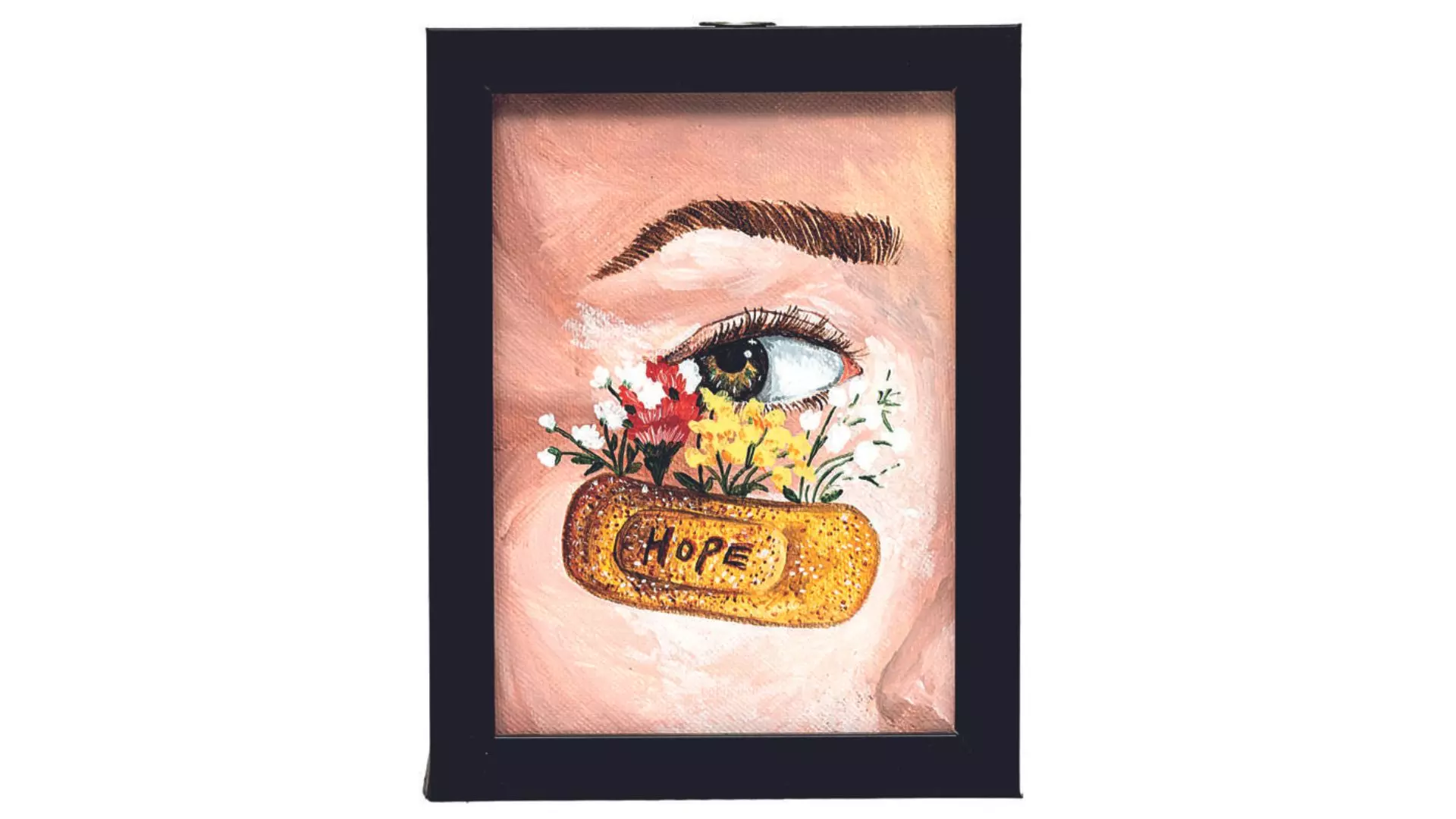Using Art To Fight Online Harassment

A powerful new exhibition in Mumbai marks the beginning of a vital movement against cyberbullying. Showcasing compelling art pieces that explore themes of resilience, empathy and overcoming adversity, it aims to ignite a crucial conversation and empower victims. The two-week exhibition honours the memory of Swara, a young woman who tragically lost her life to cyberbullying at the age of 25. The show has been curated by Dr. Sheetal Gagrani, Swara’s aunt, who embarked on a mission to raise awareness about the insidious impact of online harassment. “Cyberbullying is not merely a virtual phenomenon; it has tangible, often irreversible, effects on individuals and families. We aim to pave a path for healing and change,” she says. Apart from works by various rising artists, the exhibition also carries a collection of Swara’s own art pieces. “This partnership harmonises the emotive power of art, the practical measures of law enforcement and the human narrative behind the cause, weaving them into a unified message of awareness and empowerment,” adds Amrita Deora, founder of Designera Art Gallery.
Artistic Expressions
Amara de Tori’s ‘Emotional First Aid Kit’ is a thought-provoking sculpture that reimagines the traditional first aid kit. Substituting pills with essential elements for emotional well-being, it contains symbolic representations of “Exercise, Therapy, Meditation and Self-love.” “In our society, we readily prescribe medications for physical ailments, but mental well-being often presents more complexities,” says Tori.
Mukesh Chaudhary’s ‘Interconnected Support’ has the word “help” boldly inscribed with letters formed by hands reaching out to each other in a continuous loop of support. “The intertwined hands depict a network of interconnectedness, illustrating that by reaching out for help, individuals not only receive support but also offer it in return,” says Chaudhary. Ajinkya Jaydal’s ‘Fragile Connections’ consists of the bust of a woman with a “fragile” sticker wrapped around her form, a visual metaphor symbolizing her precariousness in cyberspace. “In today’s interconnected world, women face unique challenges and threats online, ranging from cyberbullying to harassment and exploitation,” explains Jaydal.
Aditi Nikam and Vijay Shinde’s ‘Instant Gratification’ painting series reimagines Andy Warhol’s iconic ‘Campbell’s Soup Cans’. Each can has inscriptions that serve as stark reminders of society’s obsession with immediate rewards, often at the expense of genuine effort and merit. “The artwork provokes introspection on the value we place on authenticity, perseverance and meaningful connections in an era dominated by the allure of instant fame and success,”say the artists. Another artwork by the duo,
‘Unnecessary Burden’, reimagines the iconic
Atlas sculpture with a contemporary twist. It has Atlas bearing the burden of modern society’s unnecessary baggage. Three suitcases are depicted, labelled “Negativity,” “Expectations” and “Other Mistakes.” “It serves as a poignant reminder to reassess what truly matters and to lighten our loads where possible,” say the artists.
Powerful Messages
Shinde’s ‘Illuminating Independence’ depicts a man sitting on a chair, his face a glowing neon light, symbolizing self-awareness. “It is a visual reminder that true fulfilment comes from within, through the courageous act of reaching out for help,” says Shinde. Nikam also teams up with Khushi Gursale for the ‘Affirming Emotions’ series, which reimagines the “Hello, I’m” name stickers as platforms for candid conversations about mental health and self-affirmation. Santosh Kalbande’s ‘Phases of Emptiness’ delves into the cyclical nature of emotional experiences. Similarly, Kalbande’s ‘Mastering Peace’, utilising gold foil as its canvas, underscores the idea that in today’s fast-paced world, the ultimate treasure is mental peace.
Kalbande also teams up with Nikam in ‘Renaissance Reimagined’, which transports viewers to a museum filled with classical Renaissance-style artworks adorned with Instagram-like and comment buttons. “It sparks a dialogue on the intersection of tradition and innovation, inviting us to reflect on how we engage with art in the digital era,” say the artists. In a similar vein, Sarvesh Chawan’s ‘An Instagram Mirror’ has a woman gazing into what appears to be a mirror, but is an Instagram post. It captures the contemporary phenomenon of viewing oneself through the lens of social media. “The artwork prompts viewers to reflect on how social media platforms shape our self-perception and influence our understanding of beauty, success and happiness,” says Chawan. “To prevent cyberbullying, netizens must be aware of their rights and report cases of cyberbullying to the National Cyber Crime Portal or the 1930 helpline,” concludes Mr Yashavi Yadav, Special IGP Maharashtra Cyber Department.
“This partnership harmonises the emotive power of art, the practical measures of law enforcement and the human narrative behind the cause.” — Amrita Deora, founder, Designera Art Gallery
“Cyberbullying is not merely a virtual phenomenon; it has tangible, often irreversible, effects on individuals and families.” — Dr. Sheetal Gagrani, exhibition curator

